Worker’s compensation and disability insurance both pay for expenses when you are disabled. Lets understand worker’s compensation vs. disability insurance, and which one covers what scenario.
Contents
A good financial plan helps to save money to utilize in your golden years or when times are tough. But you should also have good insurance plans to help you achieve such goals. Unfortunately, 33 % of Americans do not have a financial plan.
Sometimes you can get severely injured or can suffer from a severe illness. There are worker’s compensation and disability insurance, which will provide you benefits when your injury or illness prevents you from working.
Lets discuss more about Worker’s compensation Vs. Disability insurance. So keep reading the article for more information.
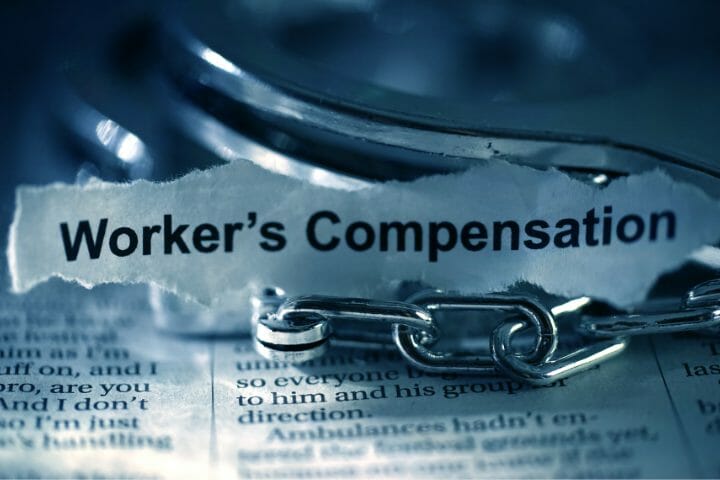
What Is Workers Compensation Insurance?
Employers are legally responsible for taking proper care of their work and ensuring that it is safe. But sometimes accidents can happen.
For example, some workers can have severe asthma problems by inhaling a certain gas or a worker can get injured while operating a machine. These accidents may be so severe that they can even affect persons ability to work. Fortunately, at that time, worker’s compensation benefits the employee.
The worker’s compensation program is a government program that assures an employee gets medical benefits and wage benefits when he is ill or has severe work-related injuries.
But the worker gets much less than the income they used to earn before getting ill or getting injured. Most employers provide only one-third of the weekly wages as wage benefit to the employees.
Similarly, the worker compensation insurance program covers your medical expenses but only if the worker is injured due to his employment.
For instance, a worker can ask for a compensation claim from his employer if he falls from scaffolding, but he cannot claim if he met an accident while driving to the job site. If an employee is killed during his job, then the worker’s compensation insurance will benefit the worker’s dependents.
Each State controls the worker’s compensation insurance program in the United States. But the laws and regulations differ from one State to the other.
The State will determine many features like how much wage benefits to be given to the employee when he is injured, which type of injuries or illness must be covered in the insurance, and various others.
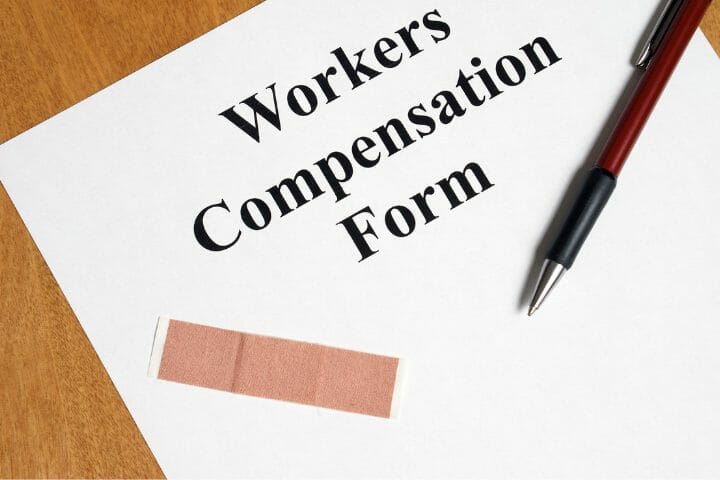
Moreover, the State will even decide whether this worker’s compensation will b provided to the employee by state running agencies or private insurance companies.
There is a worker’s compensation Board in each State to overlook the program and intervene when needed. For instance, there may be a dispute between the employer and employee regarding workers’ compensation insurance. The Board members help in resolving the issue.
You might also like to read: Is Asthma a Disability? Your Questions Answered
How Does Worker’s Compensation Affect Social Security Retirement Benefits?
The worker can get Social security retirement benefits when they reach 61 years and eight months. But, there is no age bar for receiving worker’s compensation.
Fortunately, you can get both worker’s compensation and social security retirement benefits together in most states in the United States. But some States can reduce worker’s compensation payments on receiving both the benefits after retirement.
Employees can simultaneously receive social security disability insurance(SSDI) and worker’s compensation. But both worker’s compensation and Security retirement benefits should not be more than 80 percent of the worker’s income before getting injured or disabled.
What Is Disability Insurance?
Sometimes, workers might get disabled permanently because of accidents, and unfortunately, they will lose their ability to work as well. In such cases, health insurance program is not helpful.
The employee’s families have to go through numerous problems like financial stability, and debts. So to meet the difficulties of the employee and his family, there exists a disability insurance program.
The disability insurance program provides a monthly income to the employer’s family and helps cover the expenses spent on medical treatment.
The Social Security Administration provides disability insurance to people who are disabled so that their condition hinders them from maintaining their working life for almost 12 months.
They must have also earned enough credits during the ten years of their working life. Remember, you can earn a maximum of 4 credits in a year. Again they must have also paid Social Security Disability(SSD) during their working period.
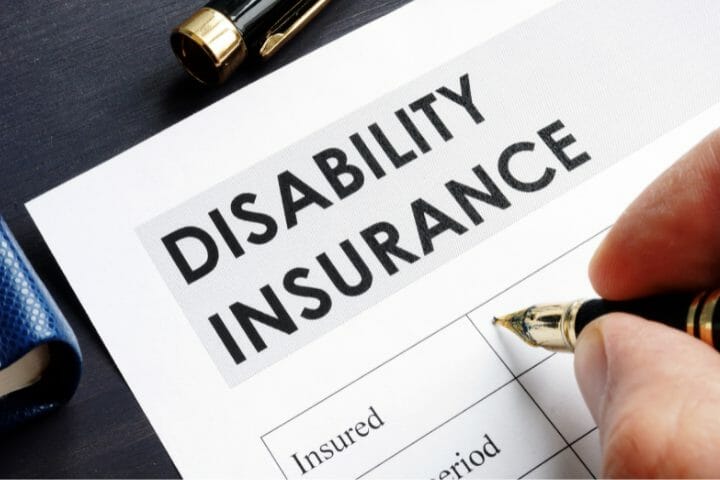
Some Features Of Disability Insurance
- The insurer does not have any right to cancel your policy. He can only cancel if you fail to pay premiums.
- You can renew your policy from time to time without affecting the benefits mentioned in the policy.
- If you don’t make any claims during the policy period, then a part of the premium is refunded back to your account.
What Is Short Term Disability?
Suppose you have had chronic back pain for many years, and finally, the doctor recommended you for surgery. The recovery is going to take several days.
Now how will you manage your office? How will you sit at your desk for five days a week? How will you cover all your expenses when you cannot maintain your work-life for certain months?
Short-term disability insurance is an answer to all these questions. Short-term disability insurance pays you some portion of your income when injury or illness has prevented you from working for a certain period. However, the injury or illness should have occurred outside of your workplace.
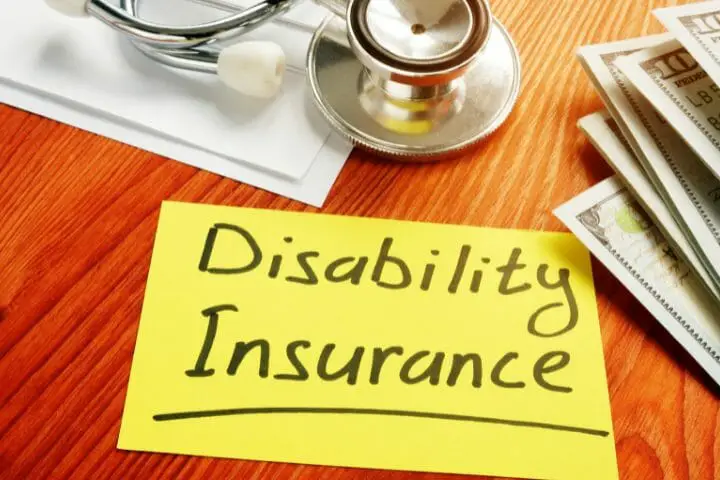
Temporary disability benefits also provides benefits to the employer. The insurance company pays the disability benefits to the worker and not the employer. So, indirectly it provides financial flexibility to the employer. The employer can recruit an individual for temporary replacement without spending much labor.
If your disability renders for an extended period, it’s better to apply for Social security disability, which can be lengthy.
The conditions that qualify you for short term disability are as follows
- Chronic illness that requires treatment for certain months
- A major surgery that needs a long time to recover
- Severe injuries in an accident
You might also like to read: Special Rules For Disability Over 50
What’s The Difference Between Worker’s Compensation and Disability Insurance
Workers are usually confused between worker’s compensation and disability insurance. No doubt both provide financial help to employees when they cannot work because of severe injury or illness. However, they have some key differences.
- The worker’s compensation covers injuries or illness that have occurred to you during the working period. If you are injured outside of your worksite, then you may be denied to get benefits. But disability insurance covers injuries or illnesses that have occurred both on and outside the worksite.
- The worker’s compensation starts immediately after your injury or illness, but disability insurance has a waiting period. Short-term disability insurance has a waiting period of almost two weeks, while long-term disability insurance has a waiting period of a few weeks or months, depending on the insurer and chosen plan.
- The worker’s compensation covers all the injuries or illnesses for which your employer is legally responsible, but in disability insurance, the employer is not responsible for paying benefits. You have to choose the policy and pay premiums. Depending on your illness or injury severity, you can determine short-term or long-term disability insurance.

Can You Get Short Term Disability And Worker’s Compensation Together?
If you are getting worker’s compensation, unfortunately, you cannot get short-term disability benefits. However, there are some exceptions. So, it’s better to talk to attorneys for confirmation.
You might also like to read: Can You Get Disability For Back Problems?
What Is Supplemental Accident Insurance?
Accidents can happen at any time. Admitting to the hospital results in high medical bills, which can put you in trouble.
According to the CDC, 35 million people visit the emergency room every year because of injuries. Visiting an emergency room costs anywhere between $150 to $3000. The medical insurance plan can only pay your medical bills up to a certain extent.
Injured workers get stuck with bills of hundreds or thousands of dollars. Supplemental accident insurance helps you handle out-of-pocket costs that have resulted from injuries in the accident.
You have to pay a monthly premium to buy this policy. However, the premium will remain the same throughout the policy’s tenure. You receive a cash benefit whenever you have an accident and are admitted to the hospital.
You can use cash for numerous purposes like emergency treatment, medical expenses, transportation costs, and even lodging. However, the cash benefit depends on the type of plan you have chosen.
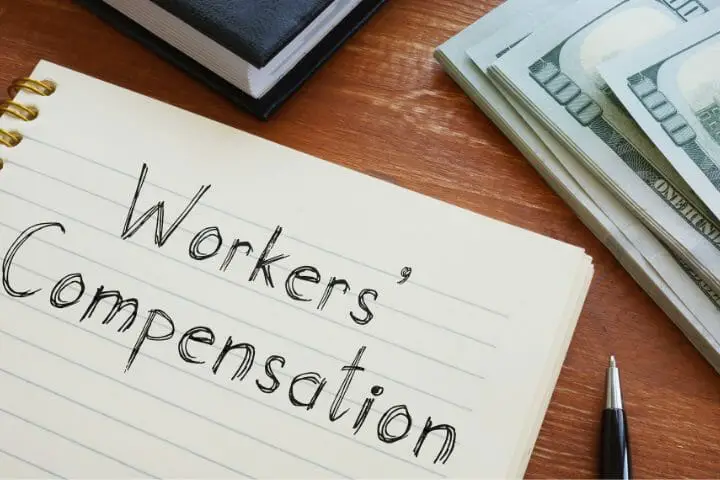
Features Of Supplemental Accident Insurance
- Begin coverage immediately
- Premiums will not increase with age
- You will get cash benefits directly.
Frequently Asked Questions
#1. Is disability income taxable?
The Social security disability benefits may be taxable if the total income exceeds the specific income value set by IRS. The total income is calculated by adding half of the permanent disability benefits and other sources of your income.
If you are single, your total income should be less than $25,000 to get exempt from taxes. If you are married and file jointly, then the threshold value is $32,000.
Fortunately, many states in the United States do not tax Social security benefits and disability benefits.
#2. Is disability the same as compensation?
No disability is different than compensation. Worker’s compensation is given when a worker is injured or suffers from severe illness because of his work.
But disability insurance provides coverage when a worker gets ill or injured either inside or outside his work organization.
#3. Can you apply for California state disability and worker’s compensation?
You cannot get state disability insurance benefits and worker’s compensation at the same time except in limited situations.
A Few Final Words
Various insurance plans can help you provide benefits in a time of emergency. For instance, buying health insurance will protect you against high medical bills, and life insurance will protect you against death.
Similarly, Worker’s compensation and disability insurance will provide you some amount f income when you are not in a condition to work in your organization. We thank you for reading this article and hope that we covered all your doubts.
